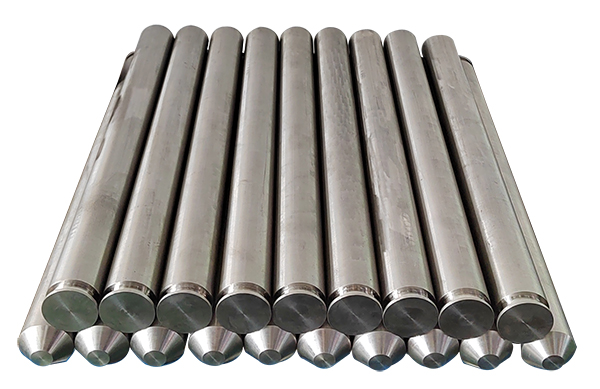Medical titanium material It is a kind of material widely used in the medical field and has many advantages compared with other traditional materials. In this paper, medical titanium and other materials will be compared and analyzed.
1. Biocompatibility Medical titanium materials have excellent biocompatibility and can be well compatible with human tissues without causing obvious rejection or side effects. This is due to the good skin and mucosa compatibility of medical titanium, and its surface is conducive to the growth of new blood vessels and the attachment of bone cells. In contrast, some traditional metal materials (such as nickel chromium alloy) may cause allergic reaction or tissue rejection, while the biocompatibility of polymer materials needs further research.
2. Mechanical properties Medical titanium materials have good mechanical properties, high specific strength and tensile strength, and usually can withstand large loads without deformation or fracture. In addition, medical titanium has excellent fatigue strength, which can maintain its mechanical properties under long-term use. The mechanical properties of traditional metal materials are relatively high, but there may be problems such as oxidation, corrosion and fatigue, while the mechanical properties of polymer materials are relatively low.
3. Corrosion resistance Medical titanium materials have excellent corrosion resistance and can exist stably in the human body environment for a long time without corrosion. This is particularly important for long-term implants. In contrast, some metal materials (such as nickel chromium alloy) may have corrosion problems, while polymer materials often have poor corrosion resistance.

4. Machinability Medical titanium materials have good machinability and can carry out various processing operations, such as mold casting, hot deformation, cold processing, etc. In this way, medical devices and prostheses of various shapes and sizes can be prepared according to actual needs. In contrast, the machinability of metal materials is generally good, but the preparation of some devices with complex shapes may be difficult, while polymer materials have good plasticity and formability, and can prepare various complex shapes.
5. Weight Compared with many traditional metal materials, medical titanium materials have lower density, so they have lower weight. This feature makes medical titanium suitable for some medical devices or prostheses that need to reduce weight, reducing the burden of patients. In contrast, other metal materials such as nickel chromium alloy are relatively heavy, while polymer materials are relatively light.
6. The price of medical titanium materials is relatively high, mainly due to the constraints of production costs and the impact of market demand. In contrast, the price of some traditional metal materials is relatively low, while the price of polymer materials is more complex, some types are more expensive, and some are relatively cheap.
The content of this article comes from the network. If you have any questions, please contact me to delete it!

